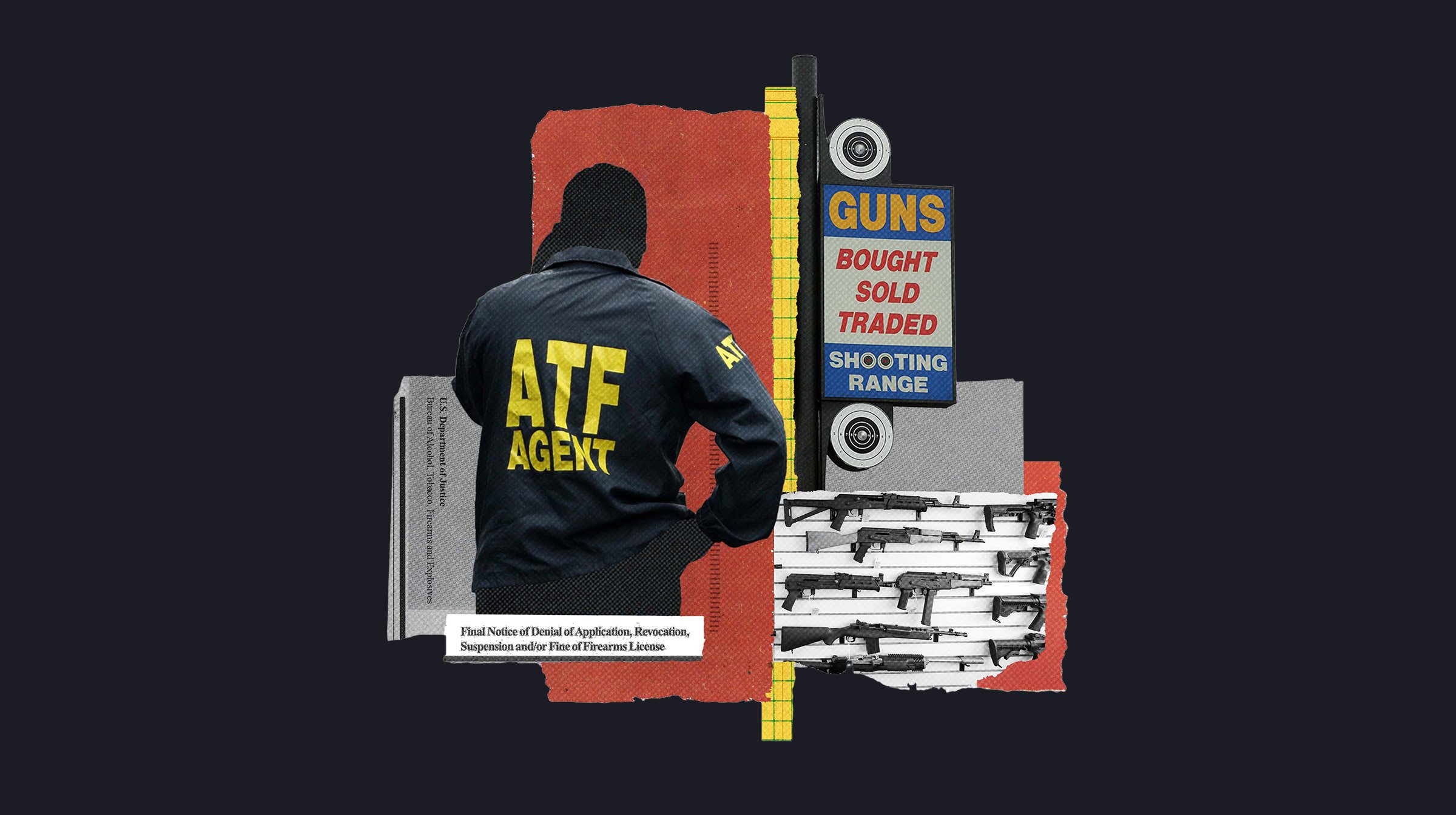Congressional Democrats are renewing their push to toughen penalties for unscrupulous gun dealers after President Joe Biden made combating dealer noncompliance part of his administration’s violence prevention strategy.
If approved, the Keeping Gun Dealers Honest Act would make it easier for the Bureau of Alcohol, Tobacco, Firearms and Explosives to shutter lawbreaking gun dealers and allow the agency to fine them as much as $10,000 for each violation of federal rules. Dealers who falsify records could be sentenced to five years in prison — up from the one-year term permitted under current law.
The bill would also increase the number of times the ATF is allowed to inspect gun dealers from one to three times a year, and it would authorize the agency to hire “at least” 80 more employees to carry out inspections. Applicants seeking a federal gun dealer’s license could be denied if the ATF deems them “a danger to public safety,” the measure states.
Representative Jim Langevin, a Democrat from Rhode Island who introduced the measure in the House on June 30, called it a long-overdue step to hold rogue gun dealers accountable for unlawful behavior.
“While the majority of gun dealers follow the law, a small number of delinquent gun dealers perpetuate the epidemic of gun violence by selling guns to straw purchasers, gun traffickers, and other dangerous individuals,” Langevin told The Trace. But right now, he said, “the hands of the ATF are tied because they’re limited in the number of inspections they can conduct, and they don’t have the resources to make those inspections robust and thorough.”
The effort comes just weeks after a yearlong investigation by The Trace and USA TODAY found that the ATF inspects only a small fraction of gun dealers each year, and when it does, the agency often finds they have broken the law. Dealers transferred guns to convicted felons and domestic abusers, lied to investigators, and fudged records to mask their illegal conduct.
In the majority of cases, the ATF responded to violations by issuing the dealer a warning. Some dealers received multiple warnings and racked up dozens of violations but the agency still allowed them to remain in business.
Congress has limited the ATF’s ability to fine dealers and requires the agency to overcome a high legal threshold to revoke the licenses they need to operate. Prosecutors, meanwhile, are usually unwilling to charge dealers with crimes because the sentences prescribed by federal law are so low, former ATF officials have said.
Senator Ed Markey, Democrat of Massachusetts, is expected to introduce the companion to Langevin’s bill after lawmakers return from the July 4th recess. Sixteen other Democrats in both chambers have signed on as co-sponsors, according to Langevin’s office. Congress considered the legislation in 2019 but failed to break through the perennial logjam over gun-control measures. In reviving their push, Democrats are betting lawmakers will be more amenable given Biden’s recently professed support for taking a harder line against problem gun dealers.
The president announced on June 23 a “zero tolerance” policy requiring the ATF to shut down gun dealers the first time they are found to have willfully committed certain violations. The bureau is also expected to start sharing its inspection data with the 16 states that impose their own gun store regulations so that they can determine whether certain dealers need to be penalized for running afoul of state laws.
“It’s always incredibly important to have presidential leadership on key issues, and certainly no issue is more important than keeping our communities safe,” Langevin said.
Langevin — who became the first quadriplegic to serve in Congress after an accidental shooting severed his spinal cord at the age of 16 — said he hoped The Trace and USA TODAY’s reporting would help the public and his Congressional colleagues understand why overhauling the ATF’s inspection program was so important.
“I know that a shooting can change a person’s life forever, and I don’t want to see another person go through what I went through,” said Langevin, now 57.
